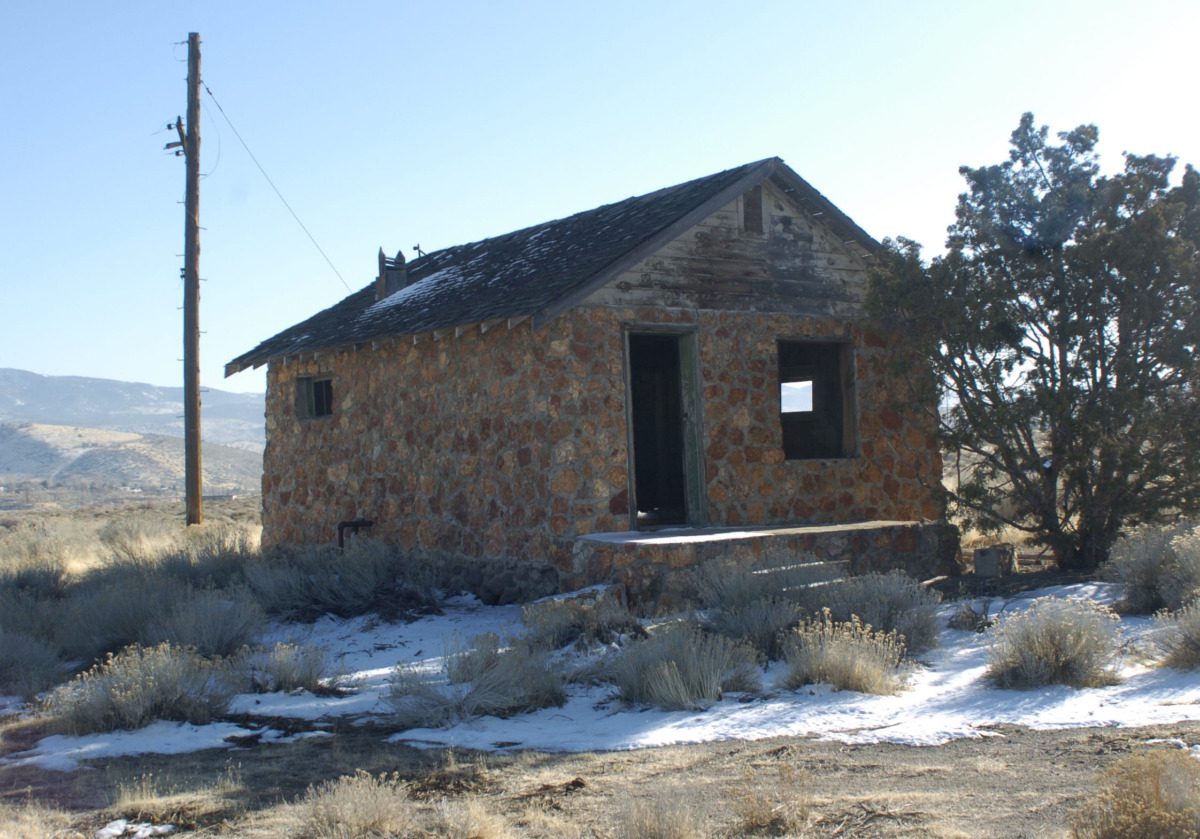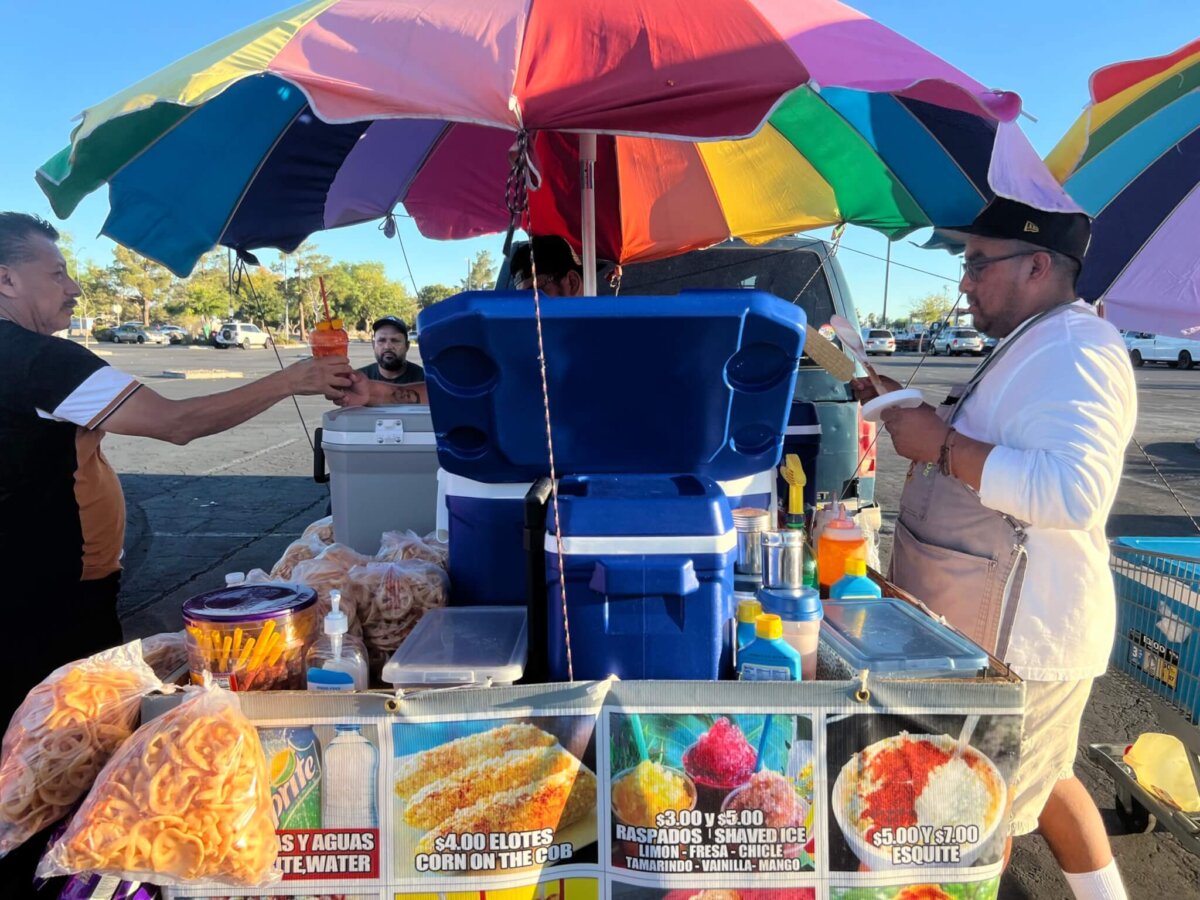
Street food vendor under a rainbow umbrella on Aug. 29, 2023. (Emilia Pablo / The Nevadan / El Nevadense)
Street food vendors finally get a licensing process, but must deal with new distance limits from parks and schools that could keep them from key clientele and affect their sales.
Street food vendors now have a path to become licensed in Clark County, but many vendors and community advocates argue that the regulations passed are overly restrictive and will make it difficult for vendors to make a living.
The Clark County Commissioners unanimously approved an ordinance on Tuesday — which goes into effect on April 30 — that lays out the requirements for street food vendors to legally operate their business, including hours of operation, licensing fees, and cart size limits. This comes after SB 92 was passed during last year’s Legislative session, which aimed to bring the street food vendors across the state out of the shadows and legitimize their small businesses.
Dozens of vendors spoke before the county commissioners to share their concerns, especially about being blocked out of parks and having to be 500 feet away from a park’s perimeter.
“Street vendors are small businesses that are starting to take their first steps and we wanted to give them a parameter so that they can work and grow,” said Andrea Masnata, communications director for Make The Road Nevada, an organization which has spearheaded advocacy efforts for street food vendors. “If we limit where they can get this way of life — which in this case is parks, schools, and churches — it really leaves them with very few options for them to make a living and provide for their family.”
Vendors also argued during the commissioners’ meeting that keeping vendors away from parks and forcing them to be on streets puts them at risk of being assaulted or robbed.
The details
SB 92 set forth some regulations, such as not permitting street food vendors to operate on the Strip, nor the Welcome to Fabulous Las Vegas sign. They must also remain at least 1,500 feet away from resort hotels, event facilities or stadiums that have seating capacity of at least 20,000 people, and convention centers. But it was up to the jurisdictions to establish local requirements and the licensing process.
Clark County established that vendors cannot operate overnight — only from 8 a.m. to 9 p.m. Stationary vendors are also not allowed to sell in residential areas; vendors in neighborhoods and residential areas must continue moving unless tending to a customer.
Vendors must also operate 500 feet away from “the extreme outside perimeter” of parks and schools during school hours and for 30 minutes after school is out.
“I understand that perhaps for the safety of the children, we can’t sell [in front of schools] during school hours, but you could consider letting us get near after school,” said street vendor Teodora Tepetzi. “The 500 feet would affect my income as a street vendor. It’s my own business and that’s what I rely on.”
The distance requirement also applies to recreational facilities and community centers, unless otherwise permitted under a contractual arrangement with the county or by a special event permit.
In order to be licensed in Clark County, vendors need to submit an application — which costs $45, plus an annual $150 fee — and information about the business, including a drawing or photograph of the cart with its height, width, and length, and proof of liability insurance.
Among other requirements, the carts used for vending can’t be bigger than 25 square feet and can’t have flashing or electronic advertisements. Vendors cannot sell from door to door and cannot sell to people in vehicles.
Vendors are also required to have a state business license, a permit issued by the Nevada Department of Taxation, and a permit issued by the Southern Nevada Health District (SNHD).
The county commission said during the meeting that a multijurisdictional business license between the county and cities is in the works. This type of license would allow vendors to just have one license and not worry about whether they are within city or county limits to sell, or worry about accidentally crossing into the next jurisdiction — vendors would just have to pay each jurisdiction’s fees.
SNHD also has its own regulations and requirements for street vendors, including that carts must be commercial grade and that food may not be prepared in home kitchens. But ingredients bought the same day can be prepared at the sidewalk vendor location, or ingredients can be stored and prepared at a commissary kitchen.
A work in progress
State Sen. Fabian Doñate, who sponsored SB 92, said during a press conference that “there’s a lot of unknowns” when it comes to the application of the bill and whether vendors (or how many vendors) will comply with the licensing requirements.
“This has been a fairly new process for our state. And so things are always changing,” Doñate said. “We’re gonna see the effects of [the park ban] now that the ordinance has been passed, either positively or negatively. The vendors have stated that it’s going to affect them negatively. And so we will just have to be mindful as that process continues.”
The county commissioners agreed that the ordinance is a work in progress and will revisit it if needed.
Doñate added that the county officials have been open to suggestions, and he hopes that they can work together to make the process easier. But he did not leave out the possibility of taking the issue back to the legislative session in 2025 — including efforts to update cottage food regulations, which is the main reason why SNHD does not allow street vendors to sell food cooked at home.
According to Nevada law, foods such as nuts, candies, jams, dry herbs, dried fruits, granola, and baked goods that do not require time or temperature controls for food safety are categorized as cottage food, which can be sold even if prepared in someone’s home kitchen. But gross sales cannot exceed $35,000 per calendar year.
“The unfortunate reality is that a lot of these requirements are going to have to come down to how we address cottage food regulations in our state statutes. There’s still a lot of work to be done,” he said, adding that SNHD should do better at creating attainable requirements or helping vendors come into compliance. “My only word of advice to the health district is to do your job, go meet the community where they’re at, help these vendors get licensed.”

12 fascinating facts about Reno’s namesake
Jesse Lee Reno was shot in the chest and killed. Find out why, plus learn 11 other facts about Reno, Nevada’s storied namesake. Reno—widely known as...
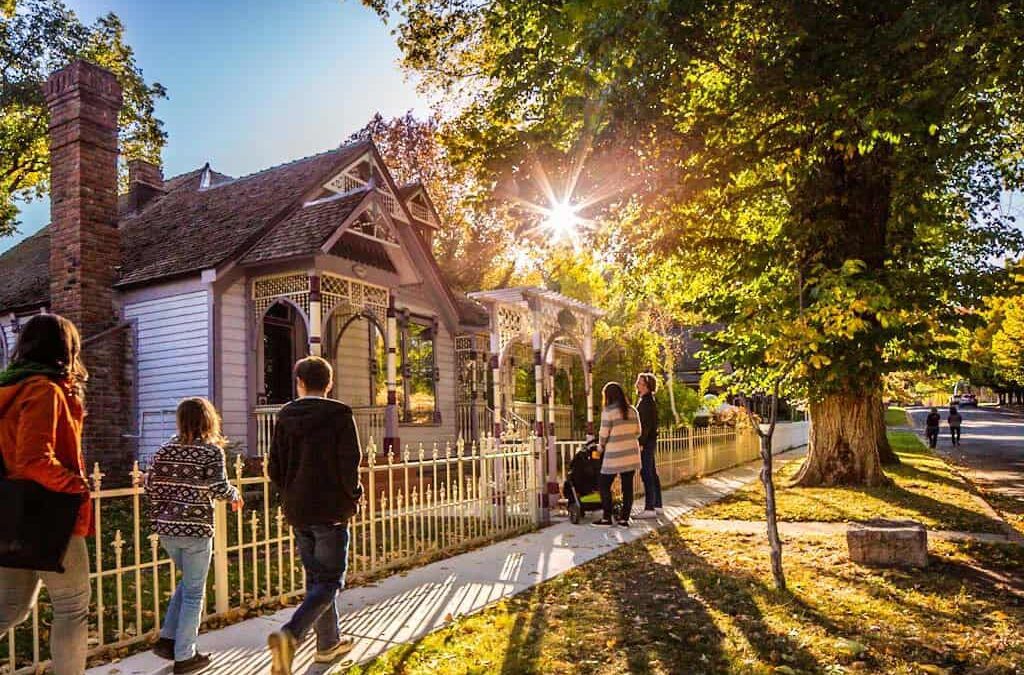
Walk your way through Carson City’s fascinating past on the Kit Carson Trail
With historic buildings, Victorian architecture, and the former U.S. Mint, the 2.5-mile Kit Carson Trail is a self-guided trip back in time. Named...

8 creepy facts about Nevada that textbooks leave out
From paranormal sightings to barren highways and a centuries-old curse, there are some wild facts about Nevada. Check out eight of the creepiest...
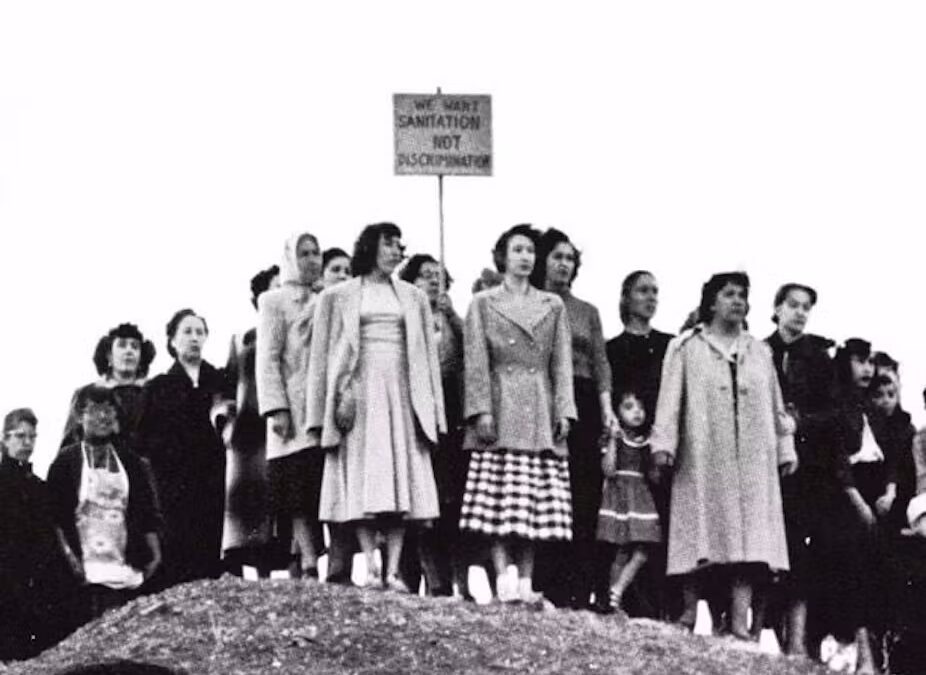
5 unsung films that dramatize America’s rich labor history
By Peter Dreier, Occidental College The U.S. is in the midst of a new upsurge of union organizing. Is a Hollywood drama about angry Starbucks...
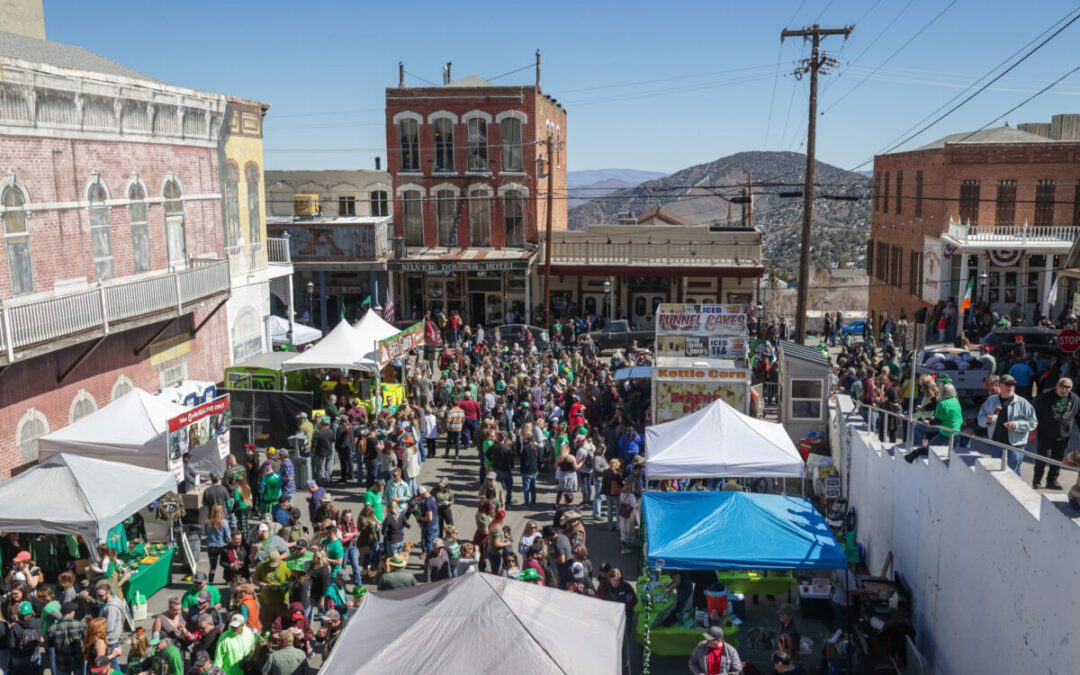
Travel back in time by visiting Virginia City’s Historic District
Once a silver rush destination, now a tourist town, Virginia City attracts about two million visitors every year. Former boomtown. Current tourist...

The 7 biggest true crime cases in Nevada history
Content warning: The following story contains descriptions of real-life violence, including murder, kidnapping, and other criminal acts. True...




